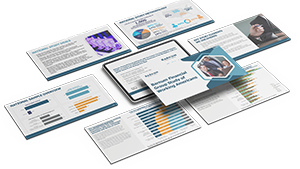
Personal finance involves strategically planning and effectively managing an individual’s financial resources to meet specific financial goals. Managing personal finances is crucial in helping to ensure financial stability. It guides you in achieving your financial goals, whether the intent is acquiring a home, saving for retirement, or venturing into entrepreneurship.
Personal finance enhances your understanding of income and expenditures, preventing overspending and debt accumulation and fostering a balanced financial lifestyle. It aids in building a financial safety net, preparing you to confront unexpected expenses without falling into debt during unforeseen circumstances. By facilitating sound financial decision-making, personal finance contributes significantly to securing a stable and prosperous financial future.
Four aspects of personal finance influence your path to financial independence and stability:
- Income is money you earn from your job, investments, or other sources.
- Expenses cover your living costs, such as housing, food, transportation, and entertainment.
- Assets are valuable possessions, such as cash, savings accounts, investments, and property.
- Liabilities are debts you owe, such as credit card debt, student loans, and mortgages.
Types of Incomes
Three income types play unique roles in your financial portfolio. Earned income from employment or business is crucial for daily expenses. Investment income from stocks and real estate can be passive, like dividends, or active, like trading stocks. Unearned income, like Social Security or inheritance, is acquired without direct labor.
How to Increase Income
- Negotiate a raise or seek a promotion at your current job.
- Invest time and energy into a side hustle to supplement income.
- Invest in personal growth and skill development. Take classes, obtain certifications, or attend workshops to enhance your qualifications for higher-paying positions or to embark on an entrepreneurial venture.
How to Diversify Income Streams
- Diversify your investments in various asset classes like stocks, bonds, and real estate to reduce risks and enhance chances of returns.
- Start multiple business ventures to decrease reliance on a single business, boosting chances of success.
- Rent unused assets like a spare room or car for passive income generation.
Types of Expenses
Your expenditure falls under three categories. Fixed expenses remain unchanged each month. They include rent, mortgage, car payments, and insurance. Variable expenses like groceries, utilities, and entertainment fluctuate each month. On the other hand, discretionary expenses, like eating out, shopping, and vacations, are wants, not needs.
How to Budget Expenses
- Track your spending to identify areas where you waste your finances.
- Create a budget to limit how much you will spend on each category of expenses.
- Review your budget regularly and make adjustments as needed.
How to Cut Back on Unnecessary Expenses
Identify unnecessary expenses — things you can do without and adjust your budget. Establish goals to cut back on spending. Find low-cost or free alternatives to unnecessary expenses. Make small changes to your spending habits over time than drastic changes all at once.
Different Types of Assets
You can own cash and cash equivalents. The most liquid assets include physical cash, checking accounts, and money market funds. Stocks, bonds, mutual funds, exchange-traded funds (ETFs), and real estate are also essential income generators. Precious metals like gold and silver can hedge against inflation or store value.
How to Save Money Regularly
- Have a budget to track your income and expenses to see where your money is going and identify areas where you can cut back.
- Set savings goals to stay motivated and on track.
- Automate your savings for proactive saving.
- Live below your means.
How to Invest Your Savings
Before investing in any asset, research and understand the risks involved. Diversify your investments in different asset classes and different sectors of the economy. Invest for the long-term benefits. Let your money grow over time. Rebalance your portfolio regularly to ensure it meets your investment goals and risk tolerance.
Different Types of Liabilities
Debt is secure if it relies on collateral. Examples include mortgages, car loans, and home equity loans. Unsecured debt lacks collateral. Examples include credit card debt, student loans, and personal loans. On the other hand, revolving debt permits borrowing up to a set amount, repaid in installments, like credit cards and lines of credit. In contrast, installment debt involves fixed repayments over a specific period, as seen in mortgages, car loans, and student loans.
How to Pay Off Debt
- Track your income and expenses to identify areas where you can cut back.
- Set debt repayment goals.
- Prioritize paying off high-interest debt first.
- Make more than minimum payments on your debt to pay it off faster and save money on interest.
- Consider combining your debt into one new loan with a lower interest rate.
- Try to increase your income to make more than the minimum payments on your debt and still cover your living expenses.
How to Avoid New Debt
- Stick to your budget
- Use cash instead of credit cards
- Pay your bills on time and in full to avoid late fees and interest charges
- Avoid impulsive purchases. Wait at least 24 hours before making a major purchase.
- Focus on your financial goals. Don’t concern yourself about what other people are doing.
Balancing it All
A financial plan is crucial for setting realistic goals that provide a roadmap for fiscal success. It serves as a compass, enabling you to track progress, identify achievements, and adjust strategies as needed. This iterative process ensures adaptability, aligning actions with evolving financial circumstances, and ultimately, contributes to long-term financial well-being.
Develop A Personal Financial Plan Today
Balancing the key elements of personal finance — income, expenses, assets, and liabilities — is paramount for achieving financial security. By proactively enhancing your finances, you can create a stable foundation for long-term financial well-being.



